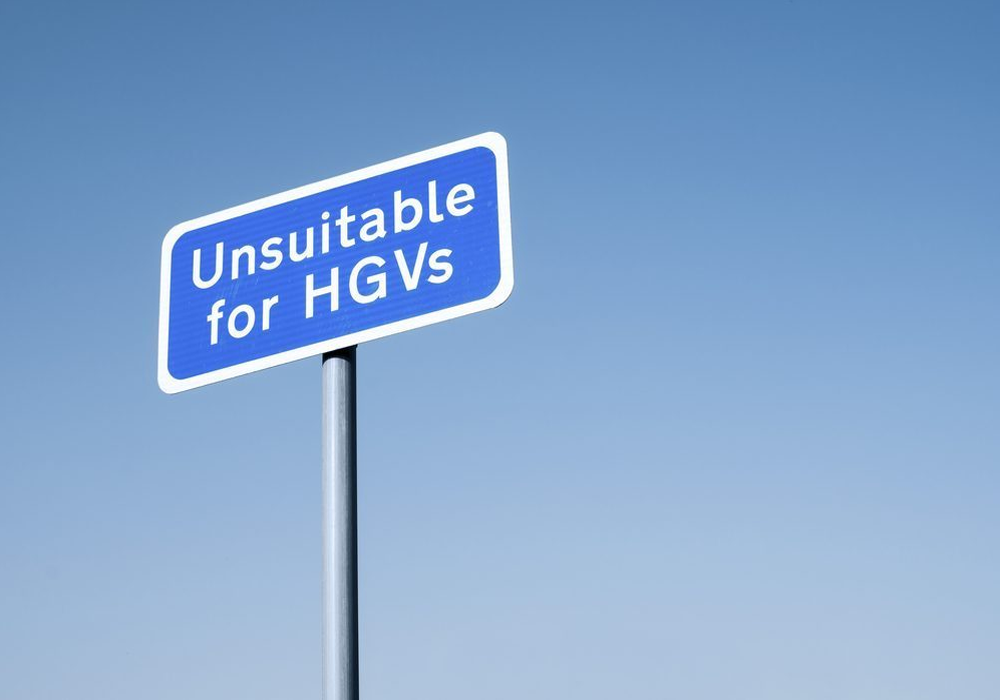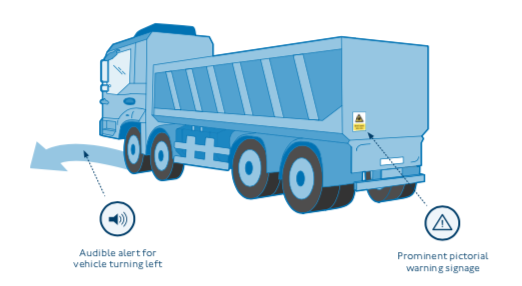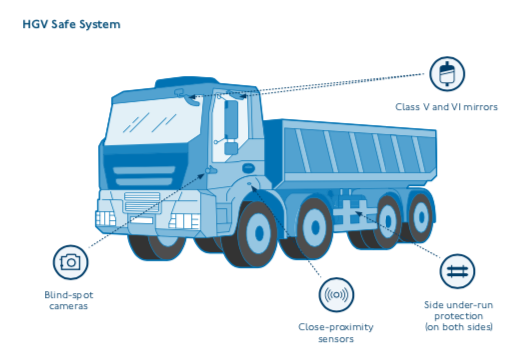
Advice for updating fleet insurance in the Covid-19 Crisis
May 7, 2020
What’s the Cost of Vehicle Tracking now?
June 2, 2020
Contents
- What is DVS?
- Do you need DVS?
- How do I know what DVS rating my vehicles are?
- Permit duration
- What vehicles are exempt from DVS?
- Failure to comply with DVS standards incurs fines
- When does DVS come into operation?
- New DVS update – Postponement of new DVS rules in London due to Covid 19
What is DVS?
A ‘standard’ to determine the visual capability of an HGV driver from his cab. It follows that adopting DVS must result in modifications to many existing HGV’s to meet the regulations, ‘though it’s to be expected/hoped that new HGV’s will be delivered ‘DVS ready’.
Aimed at reducing the high number of deaths and injuries resulting from collisions involving HGVs and people walking and cycling. The DVS objectively measures a driver’s direct view through the windows of an HGV cab. This is communicated as a star rating from zero (poor) to five (excellent), which indicates the level of risk to people walking and cycling near the vehicle.

Do you need DVS?
To find out answer the following questions:
- Do you Have HGV (over 12tonne) vehicles / N3 category vehicles?
- Are they going into London – roughly inside the M25
If the answer was YES to both and your vehicles are not exempt:
- You will have to apply for a FOC Safety Permit
- The safety permit requires that your vehicle(s) meet the minimum one star
-
If your vehicle(s) do not meet the one-star rating they are classed as zero-rated. They must be modified to meet the ‘Safe System’ requirements in order to achieve the one-star rating. The Safe System is a series of vehicle safety measures/devices fitted after point of manufacture. No specific make or brand of equipment is mandated as part of the Safe System. Click to see Pay as you Track’s DVS Solutions.
How do I know what DVS rating my vehicles are?
Your vehicle manufacturer will help you with this, or the online application process is very helpful:
- If you have a single vehicle enter the registration here
- If you have multiple vehicles download and complete the template for all your vehicles
You will be informed what star rating your vehicle(s) fit into.
Permit duration
- Zero star-rated with an approved Safe System will be granted a permit until 2024
- One and two star-rated vehicles will be granted permits until 2024
- Three, four and five-star-rated vehicles will be granted a 10-year permit
In 2024 Safety permit requirement increases to a three-star rating.
What vehicles are exempt from DVS?
Some vehicles can claim exemption. These are:
- Emergency service vehicles, such as ambulances and fire engines, which have a taxation class of ‘ambulance’ or ‘fire engine’ on the date of travel
- Armed Forces vehicles
- Breakdown organisations/ recovery vehicles
- Showman’s vehicles
- Mobile Cranes
- Vehicles in the ‘historical’ vehicle tax class providing they are not used for commercial purposes
Failure to comply with DVS standards incurs fines
- Up to £550 per day per vehicle
- Up to £150 per day per driver
As a result of the coronavirus pandemic, the fines will not be enforced until February 2021.
When Does DVS come into Operation?
On October 26th, 2020, and it operates 365 days in the year 24 hours a day.
New DVS update – Postponement of new DVS rules in London due to Covid 19
Due to Covid 19, the Mayor of London, Sadiq Khan has asked for a delay on the new rules for London’s Direct Vision Standard (DVS) moving the enforcement rule from October 2020 to the 1st March 2020.
“We recognize that the coronavirus pandemic has impacted the road freight sector in ways which could make compliance with the new standards more challenging. Though companies have been preparing for the new rules for some time, with many vehicles already compliant, the pandemic has disrupted supply chains and has placed additional demands on the industry. Postponing enforcement will allow the freight industry to focus on its core operations during the pandemic.”
“We remain committed to working together to tackle some of London’s biggest challenges, including road danger and air quality. Tightened emissions standards for buses, coaches, lorries, and specialist vehicles – in line with the tough requirements in place for the central London Ultra Low Emission Zone – will help clean up London’s air and save lives. Meanwhile, the DVS will reduce danger to vulnerable road users by introducing a safety permit system for HGVs, assigning vehicles a star rating based on how much the driver can see directly through their cab window.”
“Although the new rules under both schemes will still legally come into force in October, no charges will be payable or enforced for non-compliant vehicles under those new standards until the end of February 2021. The new date for the start of enforcement will be kept under review.”
For further information and detail:
http://content.tfl.gov.uk/hgv-safety-permit-guidance-for-operators-entering-london.pdf
https://www.youtube.com/watch?v=i-P20wdrcAQ#action=share
To read about our vehicle tracking multi-camera DVR click here.
Find out how much our multi-camera DVR will cost you with our tracking cost calculator.
Get in contact with us using our form, call us on 0161 914 5500 or email us at [email protected].

